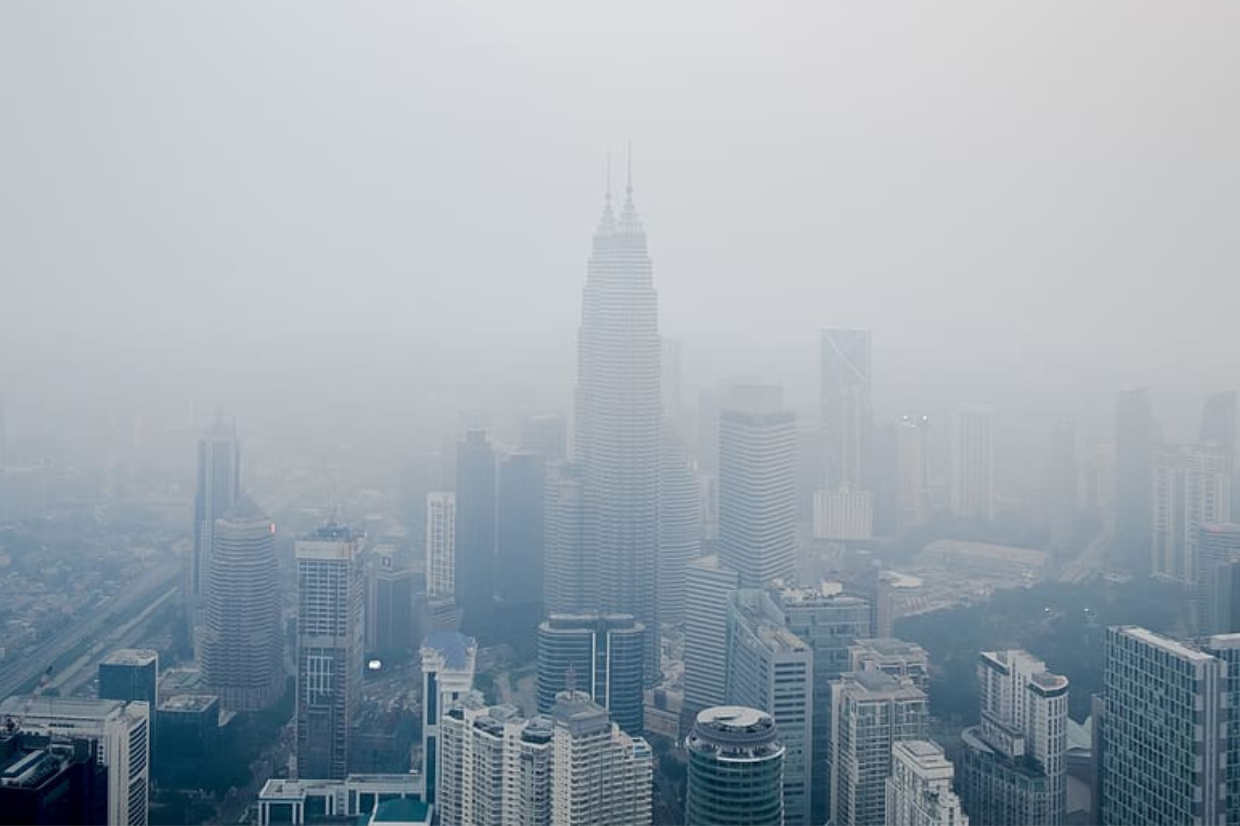04/10/2023 (Malaysia) - Malaysia has taken proactive steps to combat deteriorating air quality by announcing measures to induce rain through cloud seeding and preparedness to close schools when necessary. These efforts were prompted by concerns about the potential resurgence of pollution from forest fires, a recurring issue during the dry season. Every dry season, smoke from land-clearing fires in Indonesia, often ignited for palm oil and pulp and paper plantations, blankets the skies across the region, posing significant risks to public health and raising concerns for tourism and airlines.
In the western part of Peninsular Malaysia, 11 areas reported unhealthy air pollution index (API) readings, as revealed by Wan Abdul Latiff Wan Jaffar, the director-general of the Department of Environment. Malaysia attributed the pollution to fires in neighboring Indonesia, although Indonesia denied any smoke drifting into Malaysia's territory. Regional meteorological agencies detected nearly 250 "hotspots" indicating fires on Indonesia's Sumatra and Borneo islands, but none were identified in Malaysia.
To address the worsening air quality, Malaysia initiated measures like cloud seeding when API readings exceeded 150 for more than 24 hours. Schools and kindergartens were required to suspend all outdoor activities at an API reading of 100 and close when the reading reached 200. Environmental group Greenpeace called on countries in the region to enact legislation preventing plantation companies from causing air pollution, emphasizing the need for a domestic transboundary haze act as a deterrent, especially given issues within the industry.
In contrast, Singapore, known for its pristine air quality, implemented a cross-border air pollution law in 2014, holding responsible parties for haze criminally and civilly liable. These measures reflect the growing concern for air quality in Southeast Asia and the need for collaborative efforts to combat the recurring issue of haze pollution caused by forest fires.
Many well-connected Malaysian and Singaporean companies have also established operations in Indonesia. For example, Sime Darby and Tabung Haji Plantations are prominent Malaysian GLCs, while Genting Plantations, Kuala Lumpur Kepong and IOI Plantations are owned by powerful and well-connected Chinese-Malaysian
tycoons
Malaysian and Singaporean companies hold more than two-thirds of Indonesia’s total plantation area. Malaysian investments have an investment value of US$ 702.4 million and Singaporean investments in the sector amount to US$ 11.2 million. In this way, oil palm has become an increasingly important economic sector for Indonesia, Malaysia and Singapore. These 3 countries (MALAYSIA, INDONESIA and SINGAPORE) are the key players in regards to the ASEAN transboundary haze issue.



